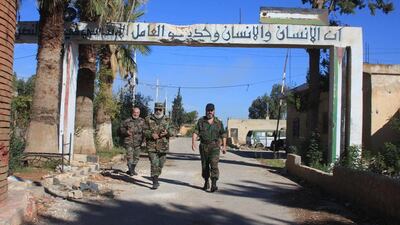At this time, when our thoughts are with those affected by the worst violence on French soil since the Second World War, it is also important to consider that these may not be isolated incidents. Indeed, in the past few weeks ISIL is alleged to have bombed a civilian Russian airline en route from Sharm El Sheikh, attacked a Hizbollah enclave in Lebanon and targeted a funeral in Baghdad.
In Syria and Iraq, ISIL is losing ground to Kurdish offensives and coordinated international air strikes. While the battles involving ISIL in Syria and Iraq are rooted in their desire to establish a new caliphate, their focus on “soft targets” abroad highlights a new phase and escalation in the long Syrian conflict.
Certainly, the attacks will cause a step change in western policymaking on Syria. Francois Hollande has called the attacks an “act of war”. Expect more air strikes, special ops and international collaboration. But between which states?
Turkey has its own agenda in Syria, especially in avoiding deliberate support for the Kurdish fighters. Its policy has also been criticised for being incoherent. Similarly, Iran's policy towards Syria is largely a function of support for its long-time ally, Bashar Al Assad, and maintaining territorial links to its second strike force, Hizbollah. Although the nuclear deal appears to be holding firm, negotiating a range of entrenched security interests with Iran in a short time frame will be unlikely.
Donald Tusk, European Council president, said Moscow's actions in Syria are exacerbating the migrant crisis, but recent talks in Vienna did conclude with a road map for Syria’s future. Taking this recent development into account, how do we get to full political negotiations on Syria within 18 months?
The solution should include the following elements:
Firstly, attacks against ISIL should be stepped up.
Secondly, these actions should be legitimised through the UN, where possible.
Thirdly, the international community needs to learn from past mistakes, establish a ceasefire and create stability on the ground.
In addition, western states and Iran must respect the legitimate aspirations of the Syrian people.
Finally, territorial integrity should also be respected. Few Syrians want partition and any such attempt will only exacerbate sectarian and regional conflict.
In addition, while it is right to increase powers for the intelligence and security services to deal with a growing violent Islamist threat – including more surveillance laws – more must be done in Europe and the US to avoid an increase in Islamophobic incidents.
Unity of purpose and society is one important feature that will help tackle the discourse of ISIL, reduce further radicalisation (including from home- grown terrorists) and undermine the divisive politics of the far right.
Dr Robert Mason is a Middle East analyst and author of International Politics of the Arab Spring: Popular Unrest and Foreign Policy
On Twitter: @Dr_Robert_Mason

